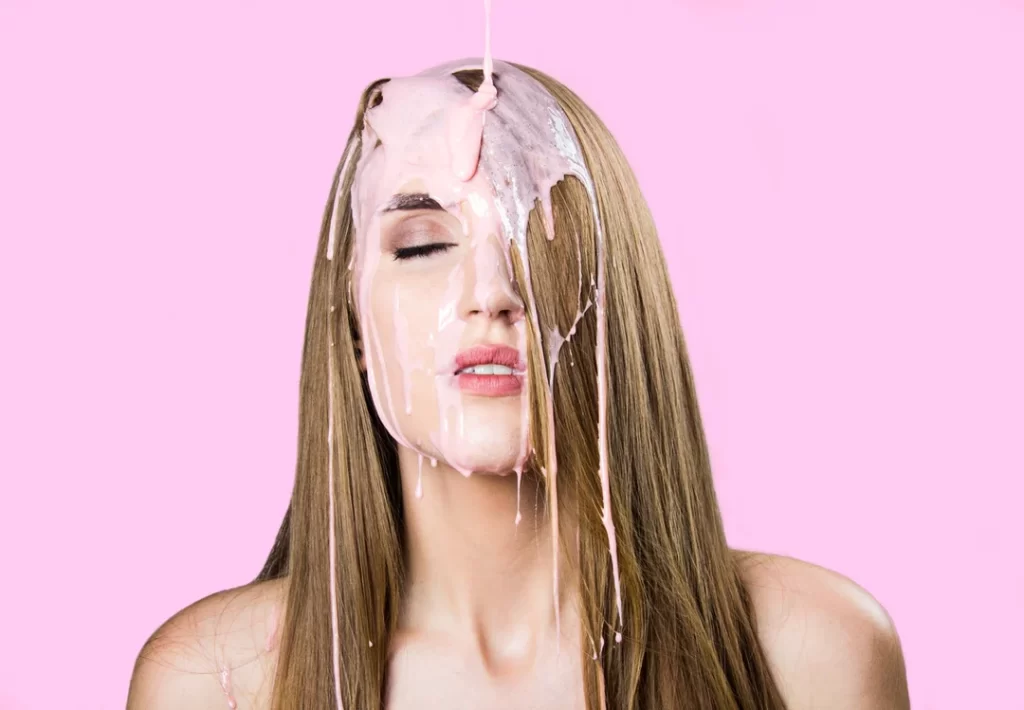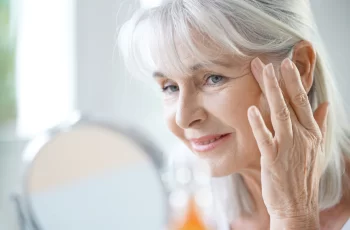
Skincare Benefits of Probiotics – Why are Probiotics Good for Skin?
Probiotic skincare, which has built popularity over recent years and is showing no signs of stopping any time soon. You perhaps already have an understanding of the benefits of using good bacteria to help reduce bloating, stomach cramps and other issues so many of us suffer from, mainly due to the yoghurt drinks that stormed the health scene back in the late 90s.
It was only a matter of time before a remarkable amount of skincare products, such as cleansers, moisturisers, serums and face masks, become available packed with probiotics! Let us take some time to explore deeper into the world of probiotics and find out what they are and how would it help you and your skin to be glowing in health.
What are probiotics?
As previously mentioned, probiotics are bacteria and yeast which promotes good gut health. Found usually in yoghurts and supplements they balance the levels of bacteria and block pathogens in the gut fighting away stomach issues previously mentioned such as bloating. It is these properties that can be carried over onto the skin. Using topical products help to calm any skin concerns with a surge of good bacteria onto the face allowing skin cells to flourish, causing the skin to glow with health!
Our skin has a natural bacterial ecosystem, also known as a microbiome, which is a highly important part of the skin offering a protective role from any harming bacteria, pollution and infection. In today’s modern world and our ever-busy lifestyle usually results in this ecosystem becoming damaged resulting in our skin becoming dry, stressed and more sensitive than ever before. By introducing probiotics to your skincare you have the chance to restore a balance to the microbiome and skin barrier.
If we were to get very technical and a tad more science, the proper definition of probiotics is that they are micro-organisms that can benefit the host. So that explains how we can take probiotics from the usual form of yoghurt or supplements and have them benefit the skin topically too.
In skincare, two main strains of probiotics found in formulas, Lactobacillus Plantarum and Bifidobacterium longum. I wouldn’t blame you for getting tongue-tied with those words, but they are both very powerful and benefit the skin’s ecosystem.
How do probiotics work?
Probiotics in skincare works in developing strains of the bacteria making them stable enough to mix into formulations, for example, when an ingredient called Lactobacillus ferment lysate filtrate is produced it is done by promoting Lactobacillus bulgaricus cells to secrete elements that come from a stress response, this is then isolated and added to skincare products, aiding anti-ageing and anti-inflammatory benefits for the skin. Now if you are still with me, I’ll share with you the three key-ways probiotic work for your skin;
Probiotics provide a protective shield on the skin, this prevents any pathogenic micro-organisms (bad bacteria) and free radicals from penetrating the skin and causing a reaction on the skin and its immunity.
They produce natural antibiotics called antimicrobial peptides which help to combat the bad bacteria found on the skin and in the environment.
Probiotics help to boost the skin’s functionality, meaning it can fight off external skin-damaging factors, such as free radicals, the harmful UV rays from the sun and daily aggressors such as pollution.
It is also worth noting that probiotics aid the skin’s barrier, microbiome (the layer of natural bacteria on the skin) to regulate pH levels, fight infections, boost immunity and keeps skin plump, to name a few. In the following section, we explore just why probiotics are so good for your skin.
Why are probiotics so good for your skin?
For years now we have become accustomed to using skincare products that have us feeling “clean” and this has conventionally resulted in products containing antibacterial agents, which in the majority of the time are too harsh for the skin and strip away the bad bacteria from our bodies.
Now to share with you something quite radical, and that is we need that “bad” bacteria on our skin. For the skin to be at its healthiest state there must be a balance of 85% good bacteria to 15% bad bacteria. To keep the natural ecosystem balanced both “good” and “bad” bacteria need to present on the skin at all times.
The microbiome of the skin comprises of a trillion different species of bacteria and remarkably have a complex connection to the bacteria residing in our intestines, which goes to prove that the ever so popular drinks and supplements, such as miso and kefir, hold the secret of maintaining a healthy gut leads to a clear and beautiful complexion. Not only do probiotics soothe aggravated skin, restore the skin’s natural protective shield, they also defend the skin against the first signs of ageing.
What skin concerns can probiotics help with?
Much like settling and soothing the gut and any stomach concerns you may have these benefits also work for many skin concerns and problems.
With developments into the research of topical probiotics, there are various strains and extracts of probiotics that are worked into skincare, resulting in a large variety of moisturisers, cleansers, masks and many more all specifically formulated to help with skin concerns. This ensures that all skin types can find a product that will work for them and their skin type.
Here are some examples of skin problems that have been most promising to mend with the help of probiotics.
Rosacea
Sufferers with rosacea will find that the inflammation of the skin causes redness mainly visible on the cheeks, nose, chin and forehead, there are usually bumps and pimples to this rash and can be very uncomfortable.
By using probiotics the redness becomes reduced and whilst calming the flare-up the skin’s barrier is strengthened and calmed the burning, itching sensation will subside and the skin will feel less dry and a lot more comfortable.
Eczema
Much like the soothing benefits for rosacea, eczema is treated with the help of probiotics. It is found that using probiotics can reduce inflammation and discomfort. Topical products are great to use for calming already existing flare-ups, whereas taking supplements will avoid any future eczema patches appearing.
This is also demonstrated with recent studies showing that pregnant women who have a history of eczema and similar conditions in their family can prevent their newborn babies from suffering. By taking probiotics that are safe to use throughout their pregnancy and six months post-partum, especially whilst breastfeeding, reduce the odds for the babies to have eczema. With links showing a connection to eczema and good gut health in infants, the use of the supplement by the expectant mothers promotes a balanced and healthy gut and digestion which in time has a connection with the child experiencing eczema.
Anti-Ageing
With daily aggressors attacking the skin with full force, it’s understandable how our skin loses the youthful, healthy complexion a little too quickly. Especially considering our habit of needing to use harsh more chemical-based products in a bid to feel “clean.”
Probiotic formulas can fight off these environmental aggressors that frequently cause sensitivity, dullness and premature ageing!
It has not been thoroughly proven yet, but probiotics have demonstrated that they boost the production of collagen in the skin, giving the face a lifted, plumped and glowing appearance. When the face is experiencing dryness, overexposure to the sun and pollution which lead to inflammation and redness flare-ups, this combined leads to the skin looking a lot older than it is, by introducing probiotic to your skincare routine it will undoubtedly reverse the signs of all these.
What’s the difference between Prebiotics, Probiotics and Postbiotics
It can get a little overwhelming, but all three of these are vital for the skin’s microbiome.
Prebiotics- Act as the food/fertilizer that encourages the micro-organisms to grow
Probiotics- These are the micro-organisms themselves
Postbiotics- These are the fragments of dead bacterial cells that remain on the skin.
Prebiotics, probiotics and postbiotics make up this complex microbiome and ensuring that the existing layer is cared for and not simply replaced. The easiest way to look after this is to stay away from antibacterial products instead of opting for leather-free cream and oil-based cleansers, moisturise heavily try to avoid long hot showers (despite how wonderful they may feel during the winter months) and over-exfoliating the skin.
It’s time to shift the idea that squeaky clean skin is the aim, as over time you are unknowingly damaging the skin.
Which skin types benefit from using probiotic skincare?
Generally, all skin types will benefit from introducing probiotics into their skincare routines. With the calming, restorative properties enabling the skin’s complexion to stay clear, balance the pH levels and look dewy to name a few!
So, in a way we have to start teaching ourselves the value that our skin’s microbiome is hugely important and stepping away from the conventional products we have become so accustomed to and their damaging, skin-stripping formulas. It’s time to embrace the dirty way of thinking, your skin will thank you for it!


